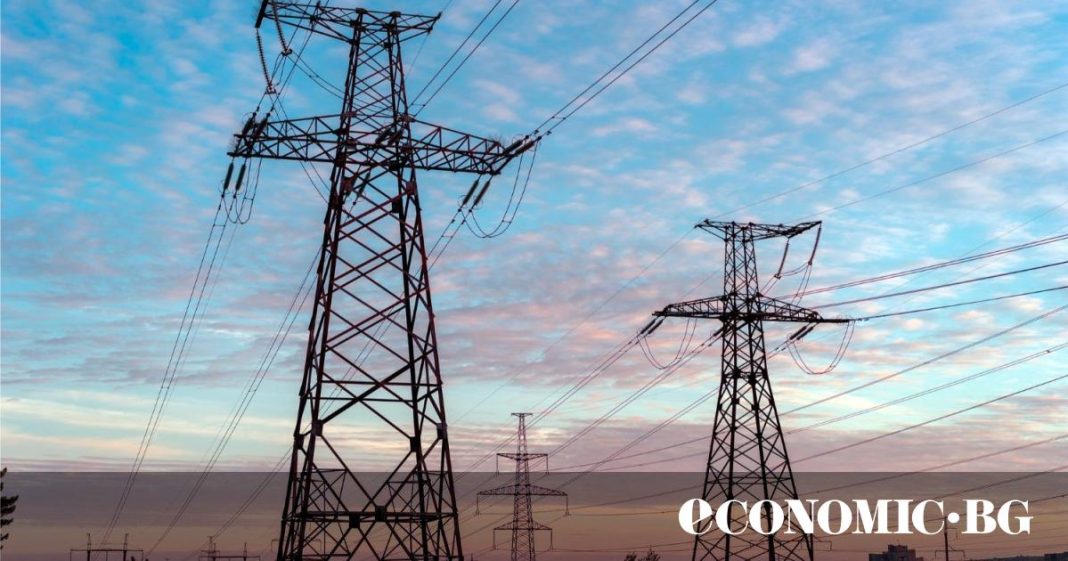The Bulgarian Federation of Industrial Energy Consumers (BFIEK) is urging the government to introduce, as a matter of urgency, a mechanism to compensate energy-intensive industries for prices above BGN 120/MWh for 80% of consumption.
This will compensate for the differences in price levels with both Europe and competitors outside the EU and restore parity in the competitiveness of the industry,“ said the Federation, which brings together the largest industrial consumers in Bulgaria.
They have addressed their open letter to Prime Minister Rosen Zhelyazkov, Energy Minister Zhecho Stankov, and the chairpersons of the energy and budget committees, Pavela Mitova (ITN) and Delian Dobrev (GERB), in connection with the expiry on March 31, 2025, of of the mechanism for compensating electricity prices for non-domestic end customers.
Since then, energy-intensive industries have been exposed to price fluctuations on the short-term electricity market. Over the past year, the whole of Southeast Europe, and Bulgaria in particular, has been exposed to much higher market prices than Central and Western Europe due to the lack of interconnection between the regions. This is a systemic problem that will take years to resolve. It undermines the competitiveness of Bulgarian energy-intensive enterprises, which are mainly export-oriented and form the backbone of the circular economy.
Bulgaria is the only country in the European Union with a significant share of energy-intensive industries in GDP that does not have a targeted policy to support these sectors,“ the BFIEK points out.
They cite a number of European Union documents, such as the Action Plan for Affordable Energy (COM/2025/79 of 26 February 2025) and the Action Plan for Steel and Metals (COM/2025/125 of 19 March 2025), which place the need for competitive electricity prices for energy-intensive industries at the heart of European policy. The need for policies to ensure the competitiveness of these industries is also clearly expressed in the so-called „Draghi Report.“
In Bulgaria, even with the application of electricity price compensation, price levels do not guarantee the competitiveness of energy-intensive enterprises,“ the Federation points out.
This is evident from the NSI data on the industrial production index for February and March 2025: for March 2025, the calendar-adjusted industrial production index fell by 8.3%, which is the largest decline since March 2024 and more than twice as large as the decline in February 2025 (-3.5%).
Energy-intensive industries are severely affected:
- Metal ore mining: decline of 14.8% in February and 2.1% in March;
Extraction of non-metallic minerals and raw materials: decline of 38.3% in February and 25% in March; - Manufacture of paper, cardboard and paper and cardboard products: down 19.5% in February and 17.5% in March;
Manufacture of chemical products: down 6% in February and 5.6% in March; - Manufacture of medicinal substances and products: a decline of 17.3% in February and 9.8% in March;
Manufacture of basic metals: a decline of 36% in February and 24.9% in March.
Since the beginning of the year, the price of electricity on the day-ahead market in Bulgaria has been 115.41 EUR/MWh, in Germany 98.63 EUR/MWh, and in France 75.62 EUR/MWh. In addition, these countries have different mechanisms for long-term contracting and various electricity price relief measures for energy-intensive industries.
For example, in Germany, the share of short-term trading is around 50%, while in Bulgaria it exceeds 90%. In France, there is a mechanism in place whereby part of the electricity purchased by industry is priced at EUR 42/MWh. From January 1, 2026, a new mechanism will come into force, which aims to establish long-term contracts with a duration of 10 to 15 years, and the price will be based on the costs of the electricity producer. According to an analysis by E-Bridge, commissioned by the Dutch government, the final prices for energy-intensive industries in 2024 will be EUR 46/MWh in Germany, EUR 32/MWh in France, and EUR 56/MWh in Belgium.
The levels are similar in Greece, Romania, Italy, Spain, and Portugal. The Scandinavian countries are traditionally even cheaper. Taking into account the effect of the compensation mechanism applied in 2024, the average price for the energy component alone in Bulgaria is EUR 84.24/MWh.
Against this backdrop, due to their high exposure to the short-term market, Bulgarian energy-intensive industries cannot forecast their electricity costs even within the calendar year. The situation is further exacerbated by reduced orders for export-oriented industries. Some producers are also under additional pressure from imports from Turkey, where the exchange price of electricity for 2024 is EUR 62.91/MWh and from the beginning of 2025 it is EUR 60.42/MWh. In addition, industry in Turkey does not have certain costs that are typical for the EU, such as those for greenhouse gas emissions.
Translated with DeepL.
Източник: Economic.bg


